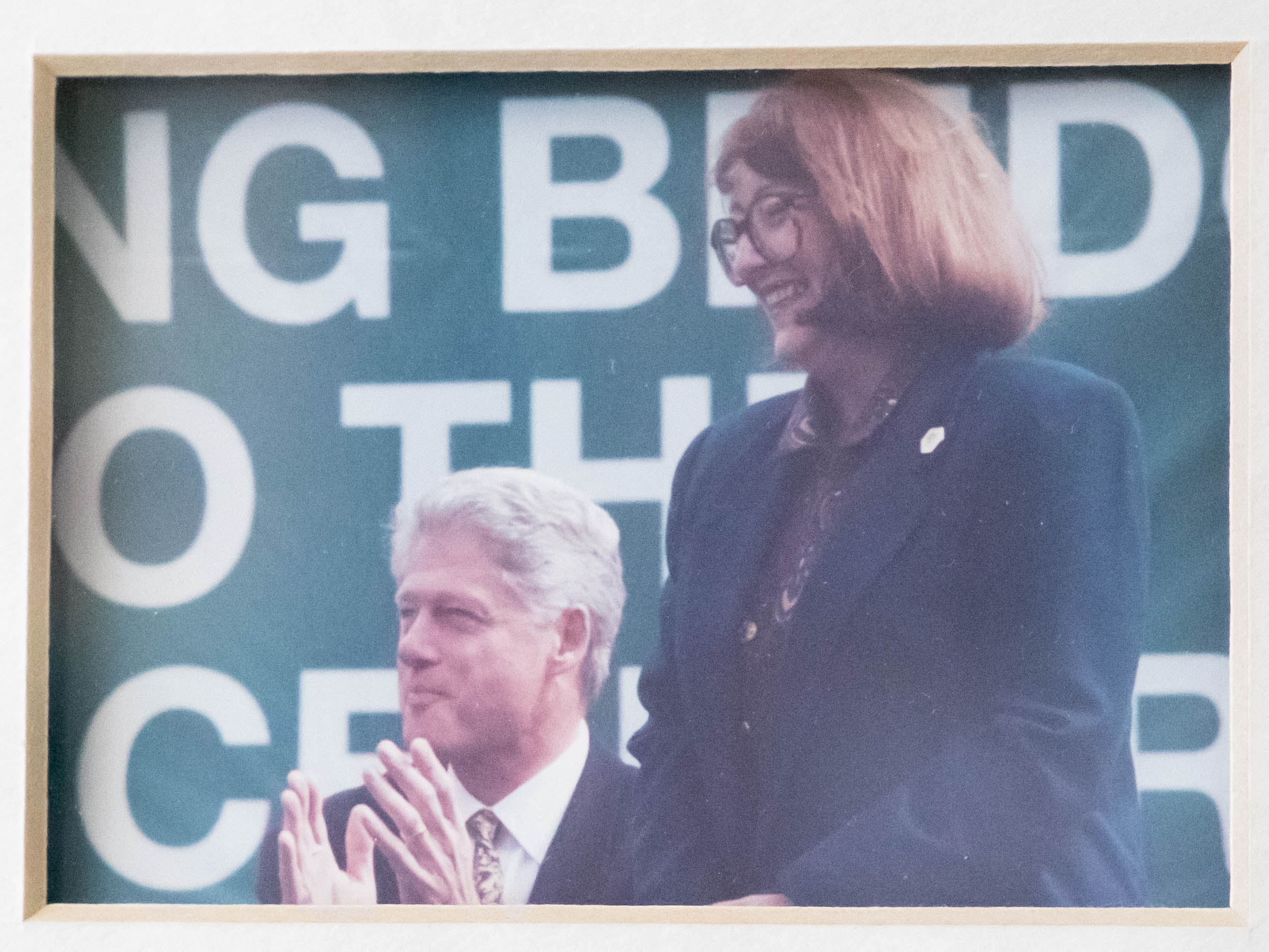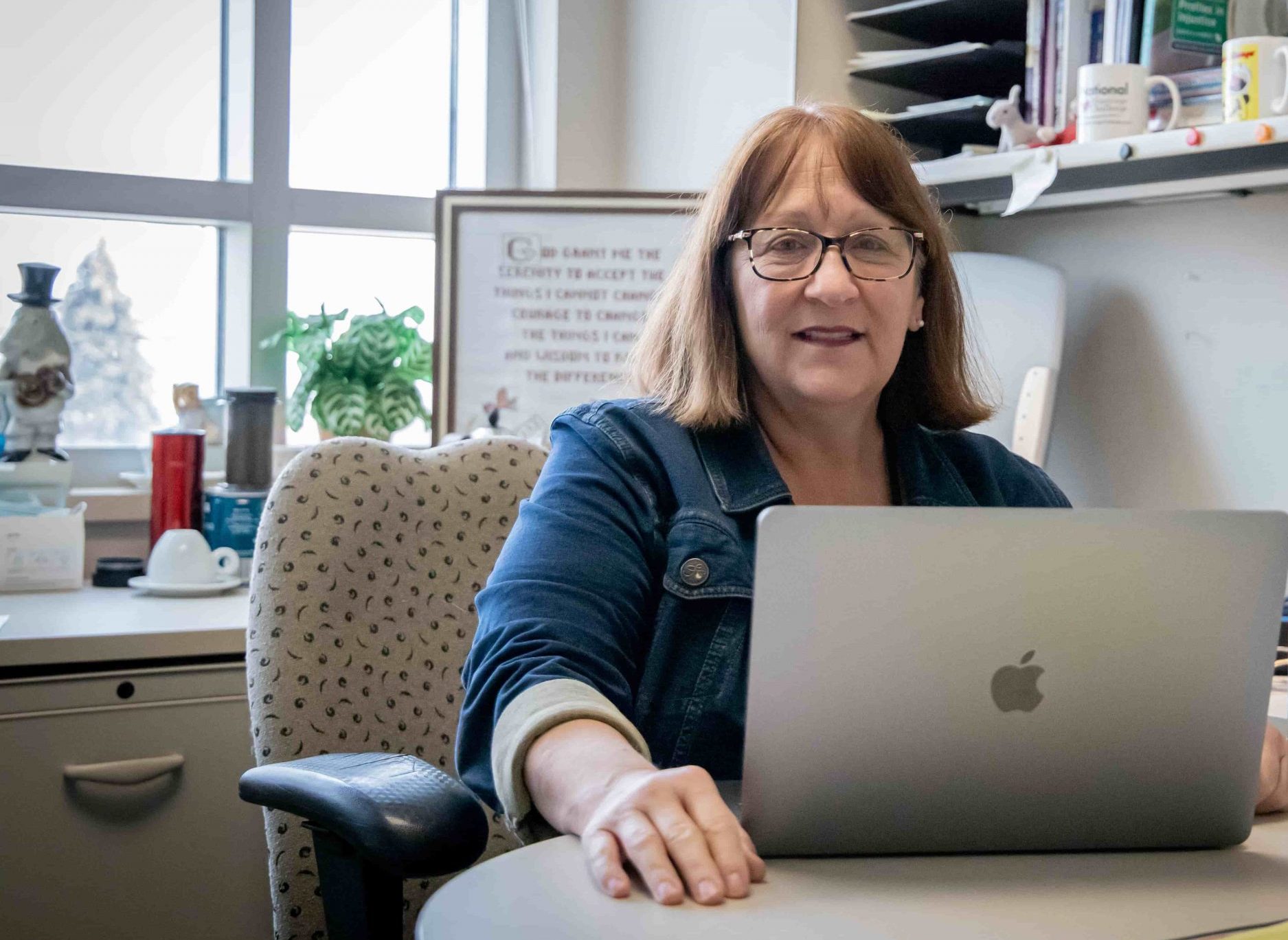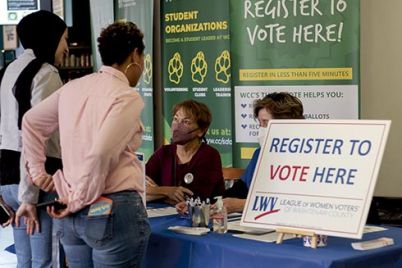
Illustration by Ian D. Loomis
by R.J. HUNT
Editor
Lynn Rivers has used her life and career to better others whether it was looking out for her own kids, looking out for citizens of her community, or looking out for students at WCC. Rivers is currently a political science instructor at WCC. She is the perfect person to hold this position as she has her experiences in the government working at the local level, state level, and federal level.
Small town beginnings
Lynn Rivers was born in Au Gres, Michigan, a small town with a population of 1,200 people. Her high school’s graduating class had 50 students. She met her current husband back in high school, and after both went through divorces they decided to reconnect and get married. Rivers went to the University of Michigan to earn her undergrad degree in biological anthropology. She went on to Wayne State to earn her law degree. She said how when she moved from the small town atmosphere it was an adjustment since she was used to people knowing her at the grocery store because everyone in Au Gres knew one another.
The motivation
Rivers first gained the desire to go into politics when her older daughter was in the first grade. She noticed the only method of reading that her school taught was phonics. Her daughter struggled with this way of learning and became discouraged. Rivers found out her daughter wasn’t the only one struggling, so she got together with other parents to seek alternative learning methods for their children.
From there she started helping people get elected to school boards. Rivers then made the big ask of seeing if people could help her get elected to the school board. She gained the support of many, which led to her serving on the school board for nine years. “The most difficult (level of government) is the local level because everybody knows you…they’re more than happy to get in your face and tell you how they feel,” said Rivers
Climbing the ladder
After serving nine years on the board of education, Rivers served two years in Michigan’s House of Representatives. A year after she was elected to the state level, a U.S. House seat opened.. “An opportunity to run for Congress happens once in a blue moon.” She contemplated whether to keep her secured spot on the state level or try to make the jump for the federal level. After a month of going back and forth on what she should do, she decided to run for election and she was elected. Not only was she elected once, but elected four times, serving a total of four terms from 1995 until 2003.

Rivers at an event with former president Bill Clinton looking on from the background. Courtesy of Rivers
Rivers discussed how she was in Congress during President Clinton’s and President Bush’s (43) administrations. During Rivers’ time in Congress, she reflected on her thoughts and opinions of major events during that time. She was strongly against going to war with Iraq and was strongly against the Patriot Act. On the other hand, she was for going to war with Afghanistan after the events of 9/11.
When the first plane struck the World Trade Center Sept. 11, 2001, Rivers was in the middle of getting her nails done. “Soon as I realized what was happening, I went tearing out of the nail salon toward my office which was across from the Capitol,” said Rivers as she was retelling the story. The madness that day was unreal. As she was trying to go toward her office, Capitol police stopped her and notified everyone to get out of the area as they were expecting another plane. She couldn’t find her staff, and wasn’t able to call anyone because cell phones were overloaded. She remembers going to her apartment that evening and the only thing she could hear was fighter planes flying over.
Some 14 months after the 9/11 tragedy, Lynn Rivers was up for reelection. Michigan’s congressional districts were redrawn. Her district merged into the district that a long-serving congressman, the late John Dingell, represented. Facing the disadvantage of going against someone who voters in the district were already familiar with, Rivers lost her seat in the House during the 2002 election. “I went through a time of depression,” said Rivers. “I finished my time in Congress on the third of January 2003. And the next day, I came to work at Washtenaw.”
Teaching at WCC
Rivers had a law degree, but after years in politics she simply didn’t want to argue anymore.
She didn’t want to stay in D.C. and become a lobbyist. She wondered what she liked about her job, she then realized she liked explaining things to the people and explaining how the government works.
She was offered a job from different schools but decided on Washtenaw because she had a good relationship with people at WCC and simply had a good feeling about it.

Professor Lynn Rivers at her desk where she prepares lectures for her government classes. Shelby Beaty | Washtenaw Voice
“I began my teaching career and I had no idea on how to be a teacher,” joked Rivers. At this point in her life, she had never taught, didn’t know how to organize a classroom, or how to put together a syllabus. If you ask Rivers, she simply learned on the job. She feels for her students that had her early on in her teaching career, but looking back she feels teaching was a good fit.
“I like WCC a lot, I like the students, I like what I teach,” said Rivers. Rivers likes mentoring students. Not only does she want students to learn the material being taught, but wants her students to get something out of her class whether transferring to another institution or not.
Rivers believes students should be exposed to different material whether it has something to do with their concentrations or not. “Maybe you’re going to do something that isn’t necessary in your 12 classes that you take, but will create a lifelong interest for you,” said Rivers.
Rivers feels she adds to the DNA of WCC because of her experiences in life. She tells students how she won’t teach them what was taught to her, but will teach through stories as she lived different experiences working in the government. She knows many students may not have had the greatest experience learning government during K-12; she does what she can for her students to help them appreciate the subject on a college level, which her students do seem to enjoy.
Rivers appreciates the diversity at WCC because of the different occupations people hold and the different experiences people share. She describes it as a special place.


